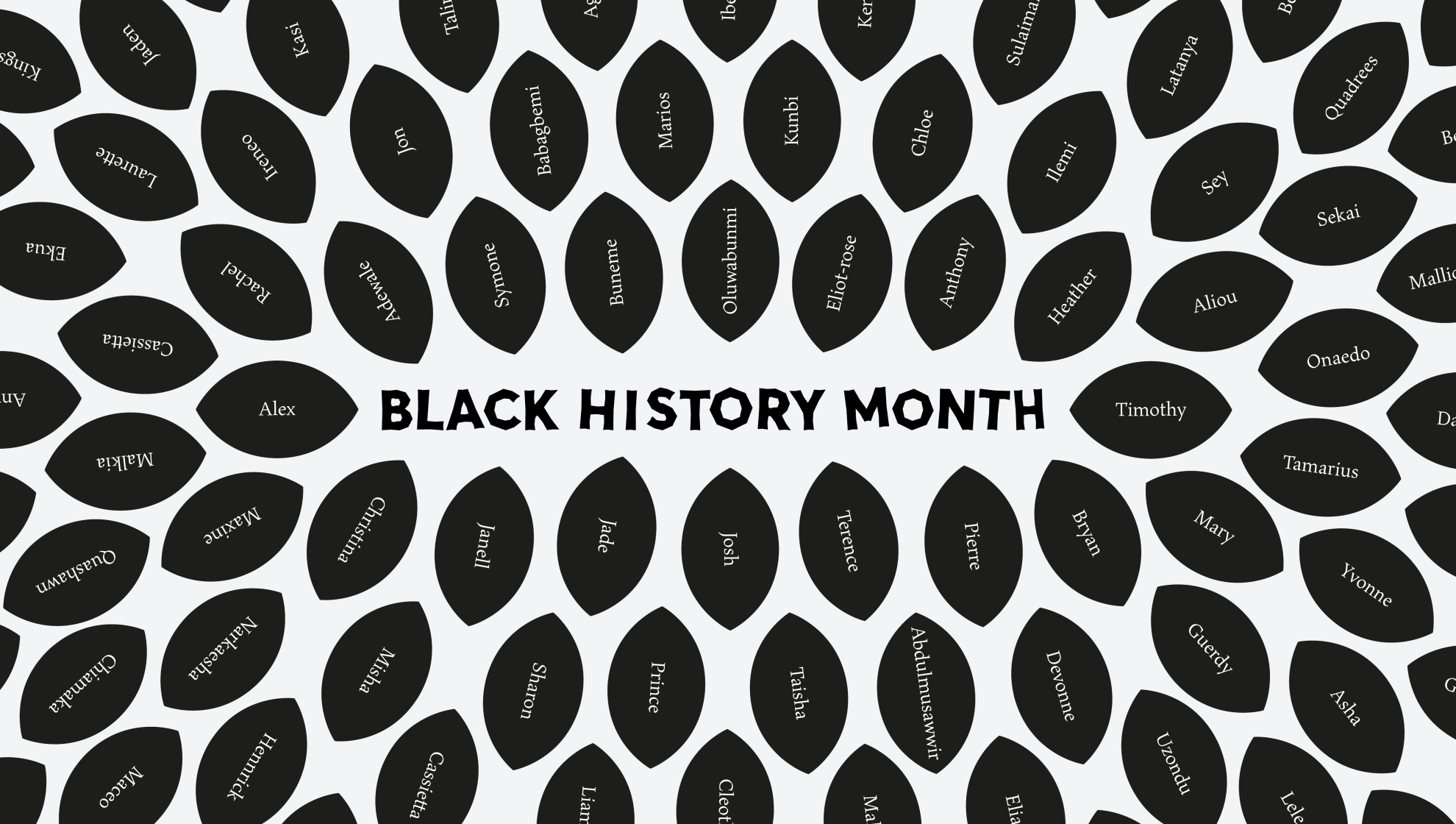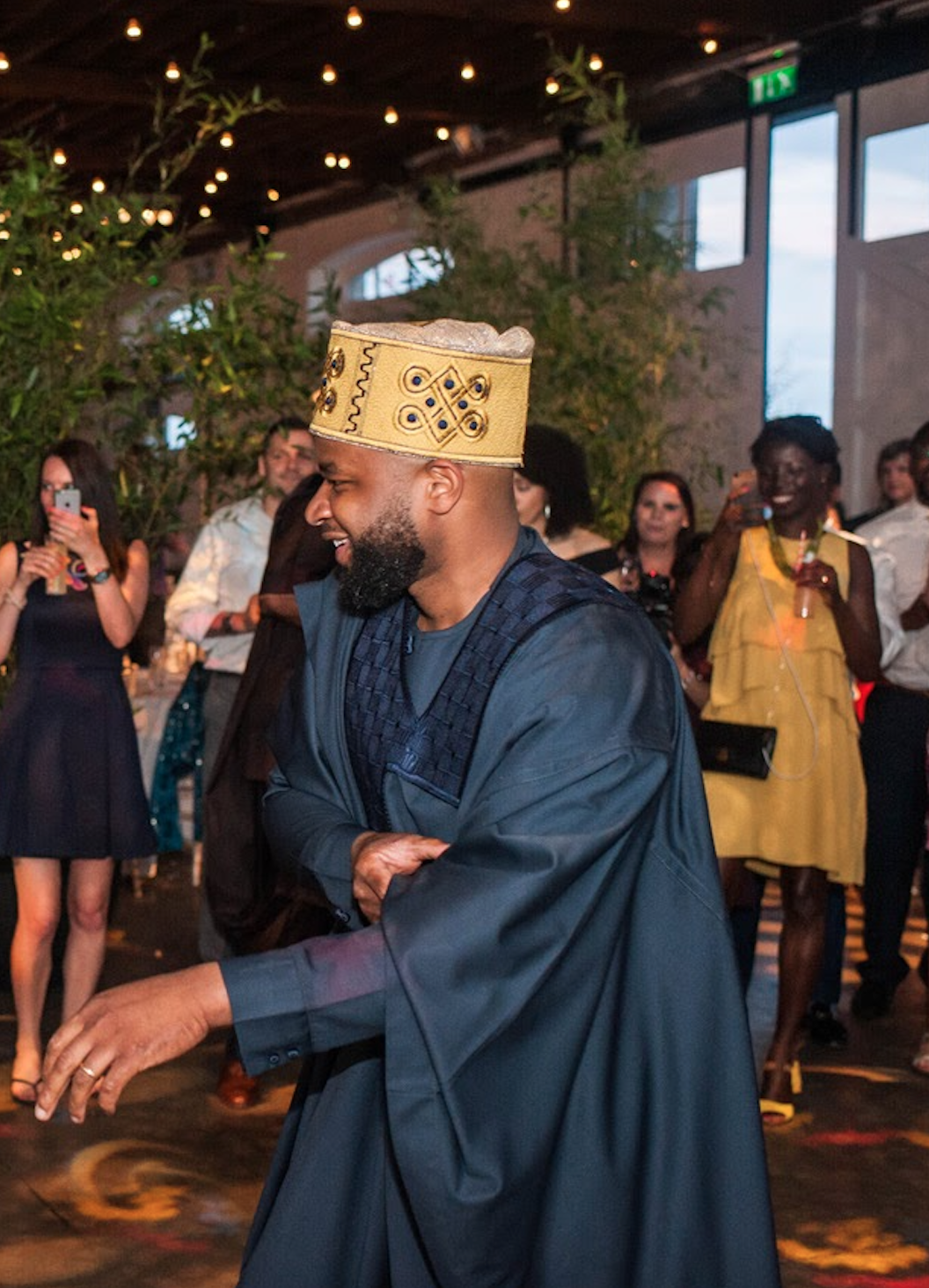What’s in a name? | Black History Month at GoCardless

Last editedOct 20203 min read
Here in the UK, October is Black History Month - a time to celebrate the important, and often overlooked, history and culture of black Britons, and those all around the world.
This time last year, GoCardless launched BEAM – our employee resource group dedicated to increasing the opportunity of the Black, Ethnic and Asian Minority community within GoCardless. Over the course of Black History Month 2020, we’re continuing our appreciation of black lives, history, and culture in a number of ways.
Today, I’m going to be sharing my own story.
London-born, Nigerian-raised
Although born in East London, I lived in Lagos, Nigeria, until I was 9 years old. I grew up in a household with a proud Nigerian heritage, in a country with faces, accents and names just like mine.
When my family moved back to the UK, I was suddenly a minority. But the thing that stood out to me the most wasn’t that I was different, but that I felt an urge to change parts of my identity to fit in.
Very quickly my “thick” Nigerian accent was dropped. I shaved my hair off to avoid the constant requests to touch it. I swapped my lunches of jollof rice for burgers and chips, because my classmates “couldn’t handle the smell.”
But despite all of this, I hung on to one thing - my name, Babagbemi, meaning God is on my side. It made me feel strong, protected and proud.
“Foreign-sounding” names
If you have a “foreign-sounding” name, you’ll be all too familiar with people regularly mispronouncing it, or even refusing to say it at all.
I recall during registration time at school (over 20 years ago) there would routinely be long pauses as teachers tried to read my name. This would quickly be followed by the whole class watching me as I tried to correct them - again.
But I didn’t care. Not until it came to job hunting in 2010.
It was horrible to realise that this name, my name - the one that made me feel so powerful - hindered my chances of employment success.
It was at this point that I decided to switch to Sigi (short for Sigismund and my European name). People would tell me “I can’t believe you’d need to do that to find a job!” But it’s not just me.
Bias against names: The data
A study was conducted by researchers at Nuffield College's Centre for Social Investigation (CSI). They sent 3,200 fake job applications in response to adverts on a popular recruitment site. This was between November 2016 and December 2017.
All of the fictitious candidates were British citizens, or had moved to the UK by the age of six. They had identical CVs, covering letters and years of experience. The only noticeable difference were their names or ethnic backgrounds.
The study produced the following results. To get the same number of callbacks as white British applicants:
Those with Pakistani heritage had to make 70% more applications
Those with Nigerian and South Asian heritage had to make 80% more applications
Those with Middle Eastern and North African heritage had to make 90% more applications
Imagine being a fresh graduate, in the middle of the global financial crisis, looking for a job, and having to deal with this!
I want to believe that things are different today, but how ingrained is this name bias? Racism still survives in many other forms - I have to ask myself “why would this be any different?”
One quote from an anonymous recruiter reflects the depressing reality of what happens behind closed doors:
"when there are 300 CVs to go through a day, any foreign name is likely to be deleted without even being opened. We feel dreadful about it, but essentially it's a matter of time-saving" (Source: The Guardian)
The “time-saving” referring to avoiding the silence that recruiters hear from employers when they put forward candidates with “foreign-sounding” names.
Reclaiming myself
I feel that by switching to my European name, I betrayed my culture and eradicated an important part of my ethnic identity, just for the sake of social convenience.
This is a journey that many of us go on. Even Barack Obama used “Barry” rather than his birth name whilst at college.
In the aftermath of the murder of George Floyd, it has been amazing to have taken part in protests, to have watched momentous events like the pulling down of the Colston Statue in Bristol, and to see businesses start to acknowledge ethnicity as part of their internal definition of diversity.
However, for me, the biggest win of 2020 is feeling confident enough to take back my Nigerian name - Babagbemi Joseph! Moreover, I’ve got a renewed passion to learn about the incredible heritage I come from.
For the first time I think I really understand why we have Black History Month.
#africanprince #saymyname #blackhistorymonth


